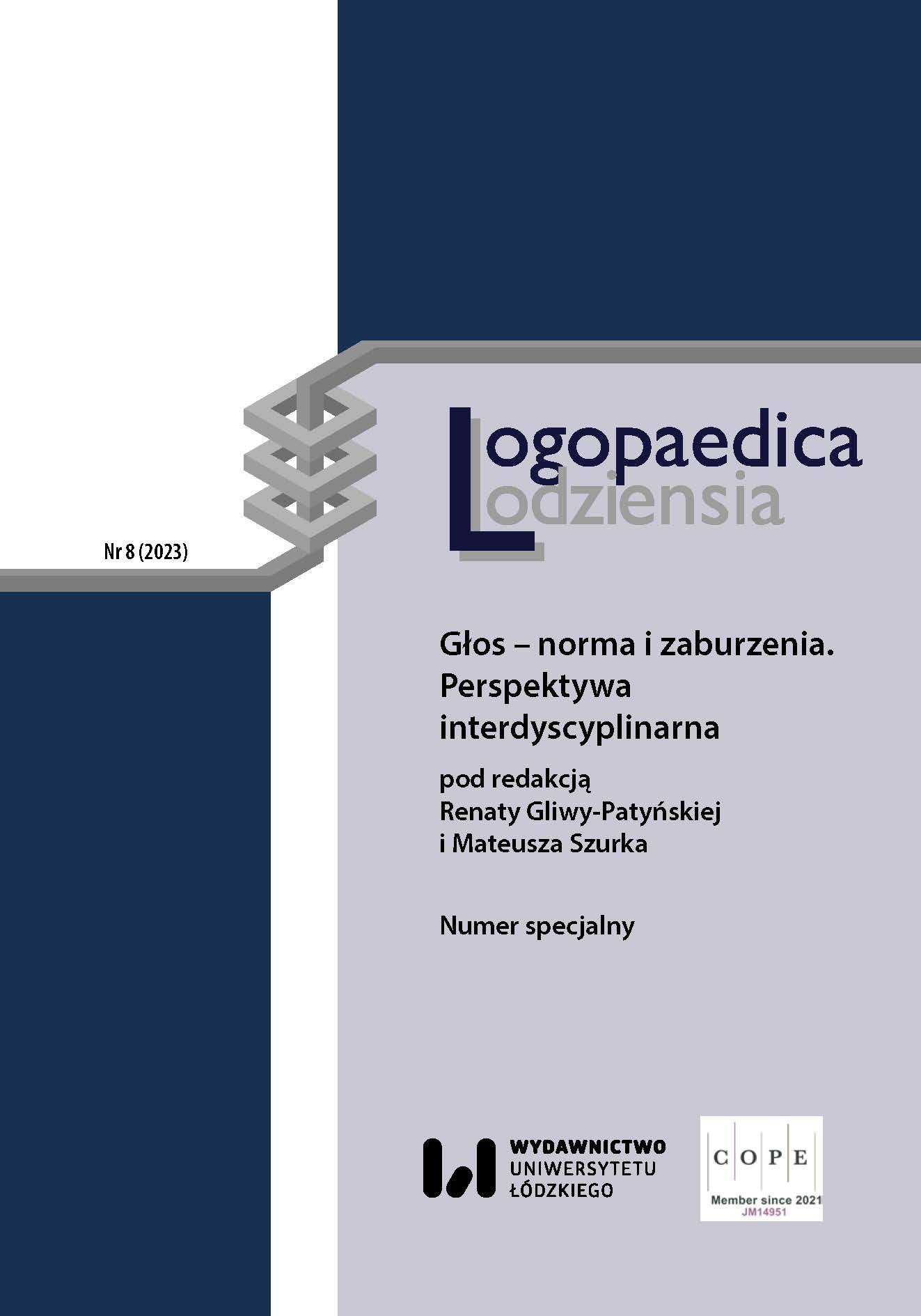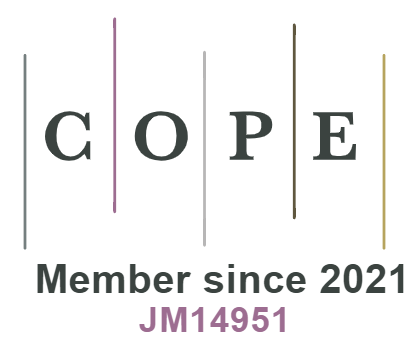The Need for Educating of Specialists in Rehabilitation of Voice Disorders
DOI:
https://doi.org/10.18778/2544-7238.08.11Keywords:
voice emission, voice disorder rehabilitation, speech therapist educationAbstract
Rehabilitation of voice disorders, which the author treats as a branch of voice emission, gathers knowledge and practice to help patients with voice disorders. In view of the increasing number of people with voice disorders of various origins, there is a need to educate specialised personnel dealing with such patients. The introduction of specialised training programs in this area contributes to improving the quality of care for patients with voice disorders. Voice rehabilitation specialists are a new, highly qualified professional group with professional training in the diagnosis and therapy of various voice disorders. In addition, the author also argues for the separation of voice emission as a separate sub‑discipline of speech therapy, with its own research subject, goals and tasks. In the further development of voice emission, it is extremely important to coin specialised terminology as a basis for the formulation of further research objectives, with particular emphasis on the rehabilitation of voice disorders.
Downloads
References
Grabias S., 2010, Logopedia – nauka o biologicznych uwarunkowaniach języka i zachowaniach językowych, „Logopedia”, t. 39, s. 9–35.
Google Scholar
Grabias S., 2012, Teoria zaburzeń mowy. Perspektywa badań, typologie zaburzeń, procedury postępowania logopedycznego, [w:] S. Grabias, M. Kurkowski (red.), Logopedia. Teoria zaburzeń mowy, Lublin: Wydawnictwo Uniwersytetu Marii Curie‑Skłodowskiej, s. 15–71.
Google Scholar
Hamerlińska A., 2010, Miejsce onkologopedii w nauce, [w:] A. Hamerlińska, B. Mikuła (red.), Onkologopedia. Podejście interdyscyplinarne, Bielsko‑Biała: Wydawnictwo Alfa‑Medica Press, s. 11–22.
Google Scholar
Kaczmarek L., 1982, Nasze dziecko uczy się mowy, Lublin: Wydawnictwo Lubelskie.
Google Scholar
Kamińska B., 2016, Od retoryki do logopedii artystycznej, [w:] B. Kamińska, S. Milewski (red.), Logopedia artystyczna, Gdańsk: Wydawnictwo Harmonia Universalis, s. 53–67.
Google Scholar
Łastik A., 2014, Poznaj swój głos… twoje najważniejsze narzędzie pracy, Warszawa: Wydawnictwo Studio Emka.
Google Scholar
Minczakiewicz M., 1997, Mowa – Rozwój – Zaburzenia – Terapia, Kraków: Wydawnictwo Naukowe Uniwersytetu Pedagogicznego.
Google Scholar
Olszewski J., Nowosielska‑Grygiel J., 2017, Nowe metody diagnostyczne oceny czynności głosu dla potrzeb foniatry i logopedy, „Logopaedica Lodziensia”, nr 1, s. 91–100.
Google Scholar
DOI: https://doi.org/10.18778/2544-7238.01.08
Pawłowski Z., 2008, Emisja głosu. Struktura, funkcja, diagnostyka, pedagogizacja, Warszawa: Wydawnictwo Salezjańskie.
Google Scholar
Styczek I., 1983, Logopedia, Warszawa: Państwowe Wydawnictwo Naukowe.
Google Scholar
Szkiełkowska A., Kazanecka E., 2011, Emisja głosu – wskazówki metodyczne, Warszawa: Akademia Muzyczna im. Fryderyka Chopina.
Google Scholar
Śliwińska‑Kowalska M., Niebudek‑Bogusz E. (red.), 2009, Rehabilitacja zawodowych zaburzeń głosu. Poradnik dla nauczycieli, Łódź: Instytut Medycyny Pracy im. prof. J. Nofera.
Google Scholar
Walencik‑Topiłko A., 2014, Emisja głosu. Kwalifikacje i zajęcia, „Forum Logopedy”, nr 2, s. 22–24.
Google Scholar
Walencik‑Topiłko A., 2016, Emisja głosu mówionego i śpiewanego. Oddech w mowie i śpiewie, [w:] B. Kamińska, S. Milewski (red.), Logopedia artystyczna, Gdańsk: Wydawnictwo Harmonia, s. 276–287.
Google Scholar
Downloads
Published
How to Cite
Issue
Section
License

This work is licensed under a Creative Commons Attribution-NonCommercial-NoDerivatives 4.0 International License.












